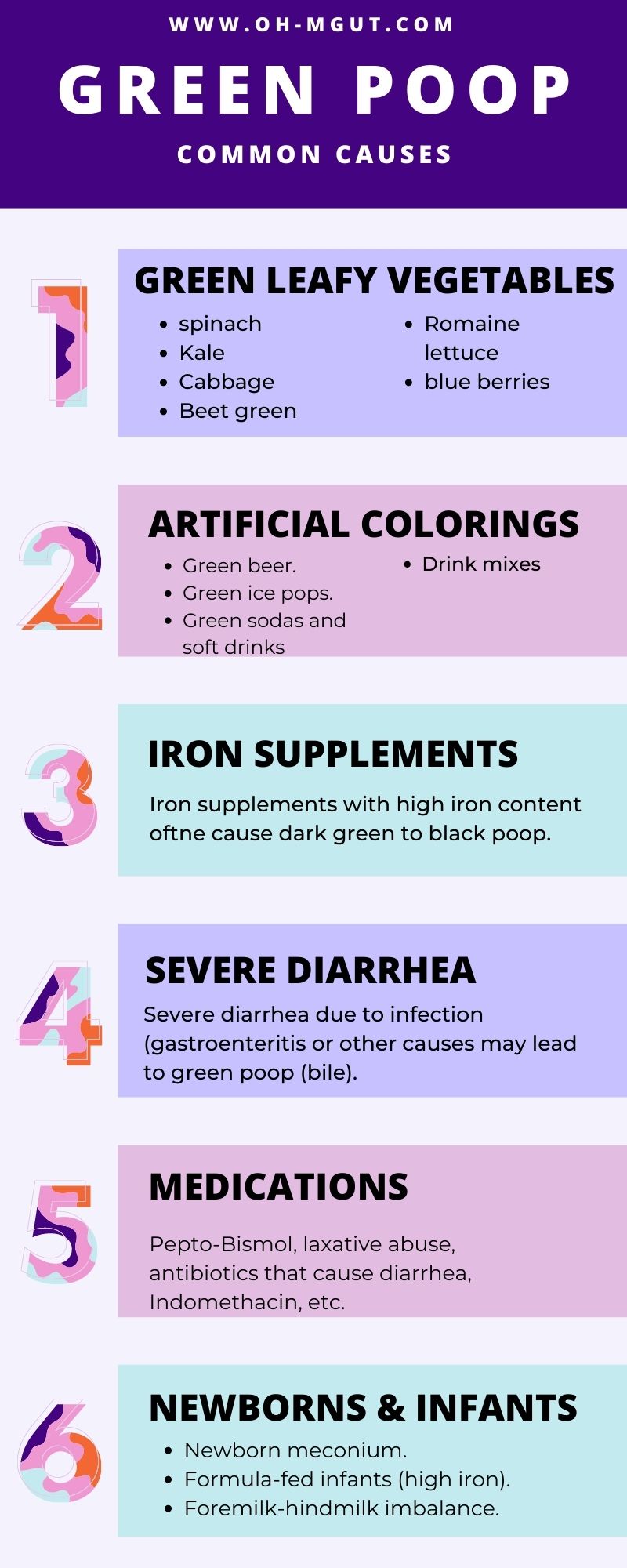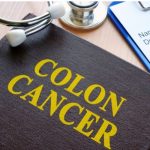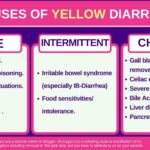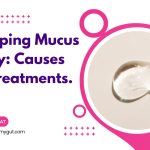Our content is not intended nor recommended as a substitute for medical advice by your doctor. Use for informational purposes only.
Why is my Poop Green? 11 Causes & when to worry.
Key facts:
- Green poop without diarrhea is often due to green dyes such as chlorophyll in green leafy vegetables and artificial colorings in foods and drinks.
- Green poop with diarrhea is often due to the speeding up of stool passage with the passage of green bile in poop.
- Green stool is often not a cause of concern unless it is prolonged or associated with severe diarrhea, abdominal pain, or vomiting.
Top reasons for green poop:
- Eating green leafy vegetables.
- Artificial colorings in foods and drinks.
- Iron supplements.
- Other medications, such as antibiotics and laxatives.
- Severe attacks of diarrhea due to infection, antibiotics, post-cholecystectomy, or other causes.
- Green poop in infants may be due to meconium (first bowel motions), formula feeding, or an imbalance of breast milk.

Top 11 reasons why your poop is green
1. Green leafy vegetables.
The first and the most common cause of eating green leafy vegetables in the hours before experiencing green poop.
Green leafy vegetables contain a green substance called Chlorophyll. Therefore, eating too many green leafy vegetables can lead to green poop.
The poop color change is directly proportional to the amount you eat.
Common examples:
- Spinach
- Kale
- Cabbage.
- Beet greens
- Romaine Lettuce.
- Blueberries.
Depending on the type of food and the amount you ate, the green color can take different shades of green, such as dark green, light or bright (neon or fluorescent) green, olive green, etc.
Symptoms:
- Greenie foods are a common cause of dark green poop. In such a case, the color of your poop is not a cause for concern.
- History of eating a significant amount of dark green leafy vegetables before the appearance of dark green poop (hours to days before).
- Absence of diarrhea (well-formed stool).
- The dark green poop goes away within a few days, and the poop returns to its standard brown color.
- Absence of other signs of digestive issues such as abdominal pain, diarrhea, nausea, etc.
The dark green poop without diarrhea or other symptoms is probably due to dietary changes. Therefore, it is not a cause of concern. No action is needed unless it continues.
See a doctor if you have diarrhea with dark green poop or when the poop color doesn’t revert to its standard color.
2. Artificial green colorings in foods & Drinks
green dyes can also lead to green poop when consumed excessively.
They cause symptomless green poop with no other digestive issues like green vegetables.
Examples:
- Dyes or color additives are used in alcoholic drinks.
- Green-colored ice pops.
- Green-colored sodas and soft drinks.
- Drink mixes.
- Natural dyes, such as green grapes, cucumber, etc.
3. Iron supplements.
Iron supplements in people with anemia (when taken orally) may turn your stool dark green or black.
The effect is dose-dependent, meaning that the higher the dose of iron, the darker the stool becomes.
Multivitamins containing low doses of irons rarely cause green poop.
4. Infection (acute gastroenteritis).
Acute digestive system infections lead to diarrhea and speeding up of intestine and colon contents.
The frequent severe attacks of diarrhea eventually lead to watery green poop.
The green color of severe diarrhea is often due to the passage of unchanged greenish bile.
Green poop doesn’t always mean infection. Green stool is mainly caused by green food and food colorings. Consider infection as a cause of green poop when there is acute onset of watery green poop with other symptoms of infection.
Causes include (reference):
| Viral: 50%–70% | Bacterial: 15%–20% | Parasitic: 10%–15% |
|---|---|---|
| Norovirus | Shigella | Giardia |
| Rotavirus | Salmonella | Amebiasis |
| Enteric adenovirus types 40 and 41 | Campylobacter | Cryptosporidium |
| Astrovirus | E Coli | Isospora |
| Coronavirus | Vibrio | Cyclospora |
| Some picornaviruses | Yersinia | Microsporidium |
| C difficile |
Whether viral, bacterial, or protozoal, the presence of dark green poop depends on the severity of diarrhea rather than the type of the organism.
Infection is often acquired by contact with an infected person or surface.
Also, the infection can be due to the contamination of food with the organisms or its toxins (foodborne illness or food poisoning).
The more severe diarrhea, the more likely to have dark green poop.
Symptoms of acute gastroenteritis:
- Sudden onset abdominal cramps.
- Nausea and/or vomiting.
- Sudden onset of diarrhea. The diarrhea is often watery and yellow at first.
- With frequent attacks of watery diarrhea, The poop eventually becomes yellow or green due to the passage of unchanged green bile.
- Dark green poop may be a sign of severity and may lead to dehydration, especially in age extremities (children and older people).
- Fatigue and body aches.
- Fever may be present (low-grade in viral gastroenteritis and high-grade in bacterial gastroenteritis.
- Signs of dehydration may occur in severe cases, such as extreme thirst, dry tongue, peeing too little urine, deep yellow urine, dizziness, shortness of breath, and fast heartbeat. Confusion and coma occur in severe cases of dehydration, particularly in babies and older adults.
5. Antibiotic-associated diarrhea.
Recent antibiotic use may cause diarrhea. This is because antibiotics may affect the normal bacteria inside your digestive system.
Antibiotic-associated diarrhea can be severe, leading to green poop due to unchanged bile.
Call your doctor if you have a recent history of antibiotic intake followed by severe diarrhea and dark green poop.
The condition is often treated by stopping the offending drug. Also, Probiotics may be needed (liver bacteria that restore the normal gut flora).
6. Other causes of severe watery diarrhea.
Severe forms of chronic diarrhea lead to dark green poop. Milder cases of chronic diarrhea are often light-brown or yellowish. The green color is often a sign of severity.
Common causes include:
- Chronic digestive system infections such as recurrent Clostridioides difficile infection.
- Severe forms of diarrhea-predominant irritable bowel syndrome.
- Celiac disease.
- Inflammatory bowel diseases (Crohn’s disease, ulcerative colitis, and microscopic colitis).
- Food intolerances (particularly lactose intolerance).
- Small intestinal bacterial overgrowth (SIBO).
- Chronic pancreatitis.
- Hyperthyroidism.
- Colorectal cancer or neuroendocrine tumors such as carcinoid and VIPoma.
- Diabetes-related diarrhea.
- Cystic fibrosis.
- And others.
Any cause of severe acute diarrhea can lead to dark green poop. However, milder forms of diarrhea for any reason often don’t cause the dark green color of poop.
7. Medications.
Medications may cause green stool by either inducing severe diarrhea or when it contains dark or green dyes.
Common examples include (reference).
- Laxative abuse.
- Antibiotics may cause diarrhea.
- Bismuth subsalicylates (Pepto-bismol).
- Indomethacin (Indocin®).
- Iron supplements.
- Medroxyprogesterone.
8. Post-cholecystectomy diarrhea.
The gallbladder is a sac-like organ attached to your liver. Its primary function is to store bile and excrete it into the small intestine when needed (after meals).
Severe diarrhea may occur when the gallbladder is removed (often due to gallstones or acute cholecystitis).
The diarrhea is often due to loss of the storage function of the gallbladder, leading to excess bile in the intestine.
One in every five persons undergoing cholecystectomy suffers from postcholecystectomy diarrhea.
Postcholecystectomy diarrhea is often due to bile acid malabsorption (secondary to increased bile acid secretion to the digestive tract).
Diarrhea often resolves within weeks to a few months after gallbladder removal. However, Some may continue to suffer for years.
Dark green poop from postcholecystectomy diarrhea may respond to bile acid binders such as cholestyramine (Questran®). Consult your doctor if your dark green poop is linked to previous gallbladder surgery.
9. Breastfeeding (foremilk-hindmilk imbalance).
In breastfed babies, it is not normal to get green poop beyond the first few bowel motions (meconium is blue or bluish-green poop). Green poop in breastfed infants can be a sign of foremilk-hindmilk imbalance.
However, it can also be other causes, such as severe gastroenteritis manifested by watery green diarrhea.
10. Formula-fed infants.
Formula-fed infants may experience green poop. The milk formula often contains high amounts of iron which can cause green or dark green poop in babies.
11. Newborn Infants (Meconium).
The first few bowel motions are often greenish or greenish-blue (called the meconium). Don’t worry about green poop in a newborn infant unless it persists for several days.
When Should you be concerned about green stool?
See a doctor if green poop is associated with:
- Stomach pain and severe diarrhea (especially in babies)
- Prolonged periods of green poop or stomach pain for more than days without apparent cause.
- Weight loss.
- Nausea or vomiting.
- Sings of dehydration include extreme thirst, peeing little urine, dark urine, confusion, or coma.
- Fever.
- Presence of blood in the stool or blackish-green stool.
Frequently asked questions about green poop.
1. Does green poop mean cancer?
Green poop is not related to cancer. Poop turn green due to diet, infections, or medications such as iron supplements. So, no need to worry about green urine as it is not related to cancer.
2. Why is my poop green if I haven’t eaten anything green?
Non-food causes of green poop include infections (gastroenteritis), and other causes of severe diarrhea such as food intolerance, antibiotic-assoicated diarrhea. Also, some medications, such as peptobismol, iron supplements, may cause green stool.
3. What causes smelly green poop?
Green smelly poop can be due to either infection (green smelly diarrhea). However, it may also be due to medications or dietary changes (green leafy vegetables and food colorings).
4. What does green hard (constipated) stool mean?
There is no direct link between hard stool or constipation and green poop. Green poop in people with constipation is usually due to green leafy vegetables or food colorings.
- Evidence-based
- Written by a doctor.






